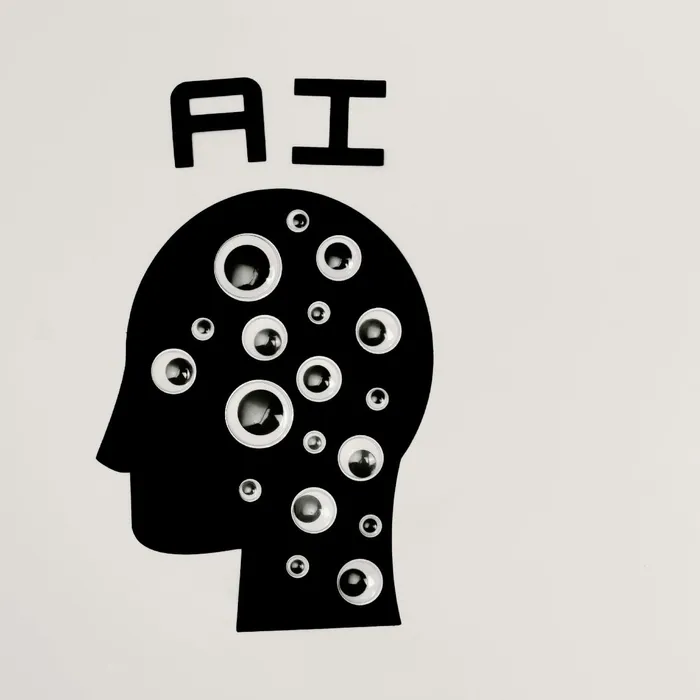
Artificial Intelligence machine, Image: Pexels
Image: Pexels
By Professor Colin Thakur
On 15 April 2025, history quietly turned a corner in Cape Town. Premier Alan Winde convened the first-ever Premier’s Council on Skills (PCS) at the Amazon Web Services (AWS) Skills Centre. This wasn’t just another roundtable - it was a full-fledged strategic intervention. The Premier, his entire cabinet, academic leaders, and tech giants gathered with one goal in mind: to understand and respond to the impact of Artificial Intelligence (AI) on work and skills development.
UNISA was a proud partner in this groundbreaking event. Senior academic voices included Prof. Mamba, Executive Dean of UNISA; the Principals of West Coast College Lungisa Mbulawa, Boland College Charles Goodwin, and False Bay College Shalen Matthews; as well as Prof. Eugene Cloete, CEO of the Cape Higher Education Consortium (CHEC).
Industry was represented by major players, including AWS and Microsoft. The exceptional Melissa Parker orchestrated the day’s flow, and the formidable Naz Ebrahim - named one of the Top 100 Brilliant Women in AI - chaired the opening session with characteristic brilliance. As part of the programme, I had the privilege of delivering a 15-minute presentation that addressed a looming but largely unspoken opportunity. I highlighted the AI hat-trick no one seems to be talking about.
In the span of a single month, three exponential technology investments were announced in South Africa:
1. Microsoft’s R4.5 billion expansion of high-performance data centres in Johannesburg;
2. Google’s R2.5 bn cloud infrastructure build; and
3. The establishment of Africa’s first AI Factory by NVIDIA and Cassava Technologies.
Each of these investments is transformative on its own, but viewed collectively, they represent an unprecedented alignment of infrastructure, computational power, and opportunity. For the first time, South African academics and innovators will have access to world-class computational resources.
But here’s the rub: no one is treating these three investments as a singular, strategic national opportunity. UNISA must help shift this narrative.
The real disruption is already here. We often speak of AI as something just over the horizon. It’s not. It’s already reshaping the world of work. Previous industrial revolutions disrupted manual labour. This one - the Fourth Industrial Revolution - is disrupting white-collar professions.
An estimated 800 million jobs are at risk. But this shift isn’t just about job losses; it’s about how the tasks within those jobs are being transformed. Every occupation is essentially a bundle of tasks, varying in complexity, duration, and repetition. In the past, Robotic Process Automation (RPA) could handle simple, rule-based work.
Now, AI agents are automating complex tasks of up to two hours long - with 50% accuracy. Every seven months, the length of tasks that AI can automate is doubling. And both task length and accuracy are improving exponentially. As AI becomes better at handling longer and more complex tasks, the implications for workers, educators, and policy makers become profound.
Here’s the paradox: to train future researchers, data scientists, and cybersecurity experts, we need high-performance computing and vast data storage. Historically, South Africa has been constrained by a lack of computational power. That constraint has now been lifted. These three major tech investments lay the foundation for a very different future. But infrastructure alone is not enough.
We must align our education systems, skills programmes, and policy responses to keep pace with technological change. Prof. Mamba was characteristically erudite when he offered a pointed, powerful remark: “An exponential response is non-negotiable. If we fail to leverage these investment opportunities to upskill our nation, then we fail South Africa.”
Premier Winde echoed this sense of urgency in his keynote address: “There is no denying AI is here to stay… We must strike a balance - utilising AI’s benefits while remaining vigilant about its risks. But we cannot wait for the future - we must create it.”
AWS’s Dr. Shivagami Gugan captured it succinctly in just three words: “Fail forward, quickly.” And Naz Ebrahim left us with this lasting insight: “We need purposeful reskilling. Skilling on its own just won’t do it.” We cannot afford to let this moment pass us by. We must integrate, elevate, and innovate. These exponential tech investments are not just about infrastructure - they’re about building capacity and advancing research.
South Africa now has the tools. The real question is - do we have the collective will? UNISA is committed to supporting an elevated response in partnership with the Western Cape. Together, we will build agile curricula, forge public-private-academic alliances, and ensure the exponential future is inclusive. We don’t just want to witness the Fourth Industrial Revolution. We want to shape it.
*Thakur is a Distinguished Professor in 4IR and Digitalisation at UNISA. He writes in his personal capacity.
